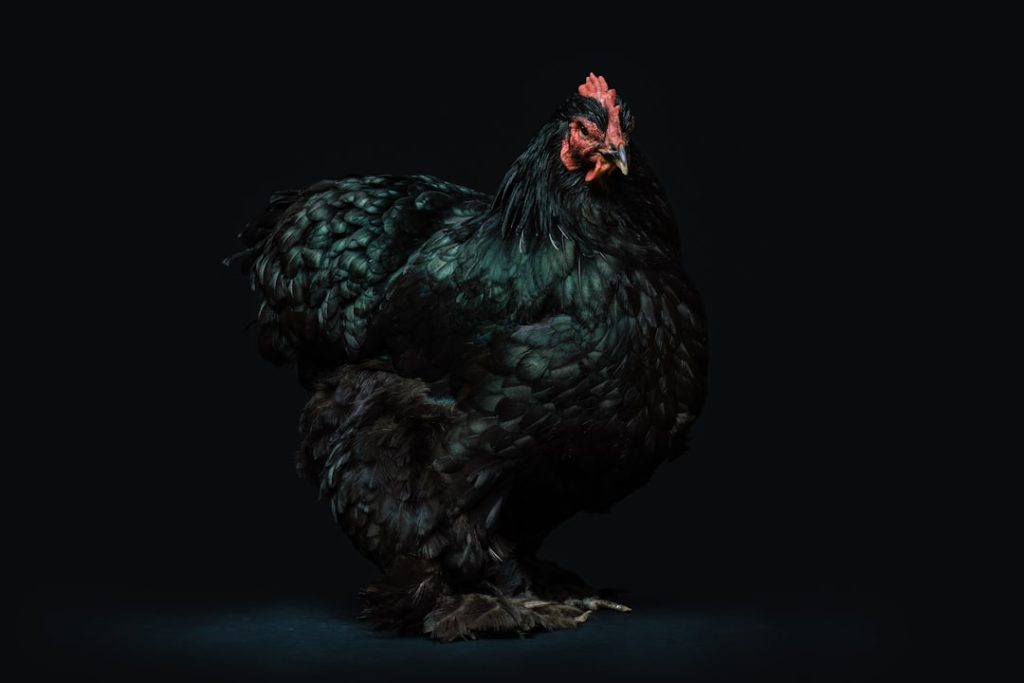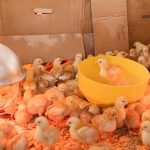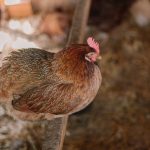A clean vent is crucial for the health and well-being of birds. The vent, or cloaca, is the opening through which birds excrete waste and lay eggs. Maintaining cleanliness in this area prevents the accumulation of harmful bacteria, parasites, and microorganisms that can cause infections and other health problems.
A clean vent also deters flies and other pests, which can lead to additional complications. Proper vent hygiene is essential for reproductive health in birds. Female birds require a clean vent to lay eggs without complications or infections, while males need it for successful mating and reproduction.
Poor hygiene can result in egg-binding in females, a condition where an egg becomes lodged in the reproductive tract, causing discomfort and potential health risks. A clean vent also contributes to a bird’s mental and emotional well-being. Birds are naturally clean animals that take pride in grooming themselves.
A dirty vent can cause discomfort and distress, leading to stress and behavioral issues. By maintaining a clean vent, bird owners can promote their pets’ overall happiness and contentment. Regular vent cleaning should be a priority in a bird’s care routine to ensure a healthy and fulfilling life.
Table of Contents
- 1 Regular Inspection and Cleaning
- 2 Providing a Clean and Dry Environment
- 3 Proper Nutrition for Healthy Digestion
- 4 Avoiding Excessive Handling and Stress
- 5 Addressing Health Issues Promptly
- 6 Seeking Professional Help if Necessary
- 7 FAQs
- 7.1 What is a chicken’s vent?
- 7.2 Why is it important to keep a chicken’s vent clean?
- 7.3 How can I keep a chicken’s vent clean?
- 7.4 What are the signs of a dirty or blocked vent in a chicken?
- 7.5 Are there any specific products or tools I should use to clean a chicken’s vent?
- 7.6 How often should I clean a chicken’s vent?
Key Takeaways
- A clean vent is crucial for the overall health and well-being of your pet bird.
- Regular inspection and cleaning of the vent area is essential to prevent any potential health issues.
- Providing a clean and dry environment helps in maintaining the hygiene of the vent area.
- Proper nutrition is key for healthy digestion, which in turn contributes to a clean vent.
- Avoid excessive handling and stress to minimize the risk of vent-related health problems.
- Address any health issues related to the vent promptly to prevent them from escalating.
- Seek professional help if necessary to ensure the proper care and treatment of your bird’s vent health.
Regular Inspection and Cleaning
Regular inspection and cleaning of the vent are essential for maintaining the bird’s overall health and well-being. Bird owners should make it a habit to check their pets’ vents on a daily basis to ensure that they are clean and free from any signs of infection or irritation. During the inspection, owners should look for any abnormal discharge, swelling, redness, or foul odor around the vent area.
These could be signs of an underlying health issue that needs to be addressed promptly. If any abnormalities are noticed during the inspection, it is crucial to take immediate action to address the issue. This may involve gently cleaning the vent area with a mild, avian-safe cleanser and warm water to remove any buildup of dirt or feces.
It is important to handle the bird with care and gentleness during this process to avoid causing further stress or discomfort. If the issue persists or worsens despite cleaning efforts, it is advisable to seek professional help from a veterinarian with experience in avian medicine. In addition to daily inspections, regular cleaning of the vent area should be included in the bird’s grooming routine.
This can be done during bath time or as needed, depending on the bird’s individual hygiene habits. Owners should use caution and gentle techniques when cleaning the vent area to avoid causing any harm or discomfort to the bird. By incorporating regular inspection and cleaning into the bird’s care routine, owners can ensure that their feathered companions maintain a clean and healthy vent, promoting overall well-being and quality of life.
Providing a Clean and Dry Environment
In addition to regular vent inspection and cleaning, providing a clean and dry environment is crucial for maintaining the bird’s overall hygiene and health. A clean living space helps prevent the buildup of bacteria, mold, and other harmful microorganisms that can contribute to vent infections and other health issues. Bird owners should regularly clean and disinfect their pets’ cages, perches, toys, and feeding dishes to create a safe and hygienic environment for their feathered friends.
Furthermore, maintaining a dry environment is essential for preventing moisture-related issues that can affect the bird’s vent health. Excessive moisture in the living space can lead to damp bedding, mold growth, and increased bacterial activity, all of which can pose risks to the bird’s overall well-being. Bird owners should ensure that their pets’ living space is well-ventilated and free from any sources of excessive moisture, such as leaky water dispensers or wet food.
Additionally, providing a clean and dry environment extends to the bird’s bathing routine. Regular baths help birds maintain proper hygiene by removing dirt, dust, and excess oils from their feathers and skin. Bird owners should provide their pets with access to a shallow dish of water for bathing or use a spray bottle to mist them with water.
It is important to use lukewarm water and avoid getting the bird’s head wet to prevent stress or discomfort during the bathing process. By prioritizing a clean and dry environment for their feathered companions, bird owners can contribute to their pets’ overall health and well-being. A hygienic living space helps prevent vent infections and other health issues, promoting a happy and fulfilling life for the bird.
Proper Nutrition for Healthy Digestion
Proper nutrition plays a crucial role in maintaining healthy digestion for birds, which directly impacts their vent health. A balanced diet that meets the bird’s specific nutritional needs is essential for promoting optimal digestive function and preventing gastrointestinal issues that can affect the vent area. Bird owners should provide their pets with a variety of high-quality seeds, pellets, fresh fruits, vegetables, and occasional treats to ensure they receive all the essential nutrients for overall health.
In addition to offering a diverse range of foods, it is important for bird owners to monitor their pets’ eating habits and ensure they are consuming an adequate amount of food each day. Overeating or undereating can lead to digestive problems that may manifest as vent issues or other health concerns. Providing proper portion sizes and monitoring the bird’s weight regularly can help prevent these issues and promote healthy digestion.
Furthermore, ensuring access to clean drinking water at all times is essential for supporting healthy digestion in birds. Dehydration can lead to constipation and other digestive issues that can impact the vent area. Bird owners should regularly change their pets’ water supply and keep it free from contamination to promote optimal hydration and digestive function.
By prioritizing proper nutrition and hydration for their feathered companions, bird owners can contribute to their pets’ overall digestive health and well-being. A healthy digestive system supports a clean and healthy vent area, promoting a happy and fulfilling life for the bird.
Avoiding Excessive Handling and Stress
Excessive handling and stress can have negative effects on a bird’s overall health, including its vent health. Birds are sensitive creatures that can become stressed when exposed to unfamiliar environments, loud noises, sudden movements, or excessive handling. Stress can weaken the bird’s immune system, making it more susceptible to infections and other health issues that can affect the vent area.
Bird owners should be mindful of their pets’ stress levels and provide them with a calm and secure living environment to minimize potential stressors. This includes placing the bird’s cage in a quiet area away from high-traffic areas or loud noises, providing ample opportunities for rest and relaxation, and avoiding sudden movements or loud noises that may startle or distress the bird. Additionally, it is important for bird owners to limit excessive handling of their pets to prevent unnecessary stress.
While some birds enjoy human interaction and handling, others may prefer minimal contact or only with familiar individuals. It is crucial for owners to respect their pets’ preferences and provide them with opportunities for socialization on their own terms. By avoiding excessive handling and minimizing stress in their feathered companions’ lives, bird owners can contribute to their overall well-being, including their vent health.
A stress-free environment supports a healthy immune system and reduces the risk of vent infections or other health issues, promoting a happy and fulfilling life for the bird.
Addressing Health Issues Promptly

Promptly addressing any health issues that arise is crucial for maintaining a bird’s overall well-being, including its vent health. If a bird shows signs of illness or discomfort related to its vent area, such as abnormal discharge, swelling, redness, or foul odor, it is important for owners to take immediate action to address the issue. Owners should seek professional help from a veterinarian with experience in avian medicine if they notice any abnormalities in their pets’ vent area or if they suspect an underlying health issue.
A qualified veterinarian can conduct a thorough examination of the bird’s vent area, perform diagnostic tests if necessary, and recommend appropriate treatment options based on their findings. In addition to seeking professional help, it is important for bird owners to follow any treatment recommendations provided by the veterinarian diligently. This may include administering medication as prescribed, making dietary adjustments, providing supportive care at home, or implementing any other necessary measures to promote healing and recovery.
By addressing health issues promptly and following through with appropriate treatment recommendations, bird owners can help their feathered companions overcome any vent-related problems or other health concerns effectively. This proactive approach supports the bird’s overall well-being and promotes a happy and fulfilling life.
Seeking Professional Help if Necessary
While many aspects of maintaining a clean vent and overall health for birds can be managed at home by dedicated owners, there are times when seeking professional help is necessary. If a bird experiences persistent or severe vent-related issues despite home care efforts or if there are concerns about its overall health, it is important for owners to seek assistance from a veterinarian with experience in avian medicine. A qualified veterinarian can conduct a comprehensive examination of the bird’s vent area and overall health status to identify any underlying issues that may be contributing to its symptoms.
They may perform diagnostic tests such as fecal analysis or blood work to gather more information about the bird’s condition and develop an appropriate treatment plan based on their findings. In addition to addressing specific health concerns related to the vent area, a veterinarian can provide valuable guidance on general care practices that promote optimal hygiene and overall well-being for birds. This may include recommendations for grooming techniques, dietary adjustments, environmental modifications, or other measures tailored to meet the individual needs of the bird.
By seeking professional help when necessary, bird owners can ensure that their feathered companions receive the best possible care for maintaining a clean vent and overall health. A collaborative approach between dedicated owners and knowledgeable veterinarians supports the bird’s well-being and promotes a happy and fulfilling life. In conclusion, maintaining a clean vent is essential for promoting overall health and well-being in birds.
Regular inspection and cleaning of the vent area are crucial for preventing infections and other health issues that can affect the bird’s quality of life. Providing a clean and dry environment, proper nutrition for healthy digestion, avoiding excessive handling and stress, addressing health issues promptly, and seeking professional help when necessary are all important aspects of maintaining a clean vent and overall health for birds. By prioritizing these practices as part of their care routine, dedicated owners can contribute to their feathered companions’ happiness and longevity.
If you’re looking for tips on how to keep your chicken’s vent clean, you may also be interested in learning about different types of chicken coops. Check out this article on farmhouse chicken coops and A-frame chicken coops for some inspiration on how to create a comfortable and clean living space for your feathered friends.
FAQs
What is a chicken’s vent?
A chicken’s vent is the external opening of the cloaca, which is the common chamber for the digestive, reproductive, and urinary systems.
Why is it important to keep a chicken’s vent clean?
Keeping a chicken’s vent clean is important for maintaining the bird’s overall health and preventing potential health issues such as vent gleet, egg binding, and infections.
How can I keep a chicken’s vent clean?
You can keep a chicken’s vent clean by regularly inspecting the area for any buildup of feces or dirt, gently cleaning the vent with warm water and a mild soap if necessary, and ensuring the bird’s living environment is clean and dry.
What are the signs of a dirty or blocked vent in a chicken?
Signs of a dirty or blocked vent in a chicken may include a foul odor, difficulty passing droppings, swollen or red vent area, and a decrease in egg production.
Are there any specific products or tools I should use to clean a chicken’s vent?
It is recommended to use warm water, mild soap, and a soft cloth or cotton swab to gently clean a chicken’s vent. Avoid using harsh chemicals or rough materials that could irritate the bird’s skin.
How often should I clean a chicken’s vent?
It is advisable to check a chicken’s vent regularly and clean it as needed, especially if you notice any signs of buildup or blockage. Regular maintenance of the bird’s living environment can also help prevent vent-related issues.
Meet Walter, the feathered-friend fanatic of Florida! Nestled in the sunshine state, Walter struts through life with his feathered companions, clucking his way to happiness. With a coop that’s fancier than a five-star hotel, he’s the Don Juan of the chicken world. When he’s not teaching his hens to do the cha-cha, you’ll find him in a heated debate with his prized rooster, Sir Clucks-a-Lot. Walter’s poultry passion is no yolk; he’s the sunny-side-up guy you never knew you needed in your flock of friends!







